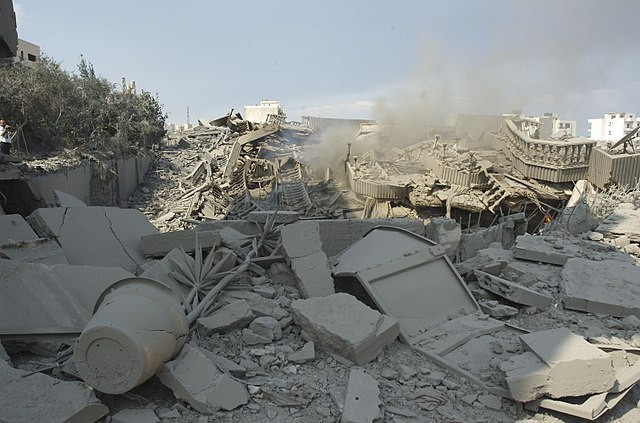Israel and the Palestinian militant group Hamas signed an agreement Thursday to cease fire and exchange captives, marking the first stage of U.S. President Donald Trump's plan to end a two-year war in Gaza that has devastated the region and claimed tens of thousands of lives.
Under the deal, fighting will stop, Israel will partially withdraw from Gaza, and Hamas will release all remaining Israeli hostages in exchange for hundreds of Palestinian prisoners. At the White House, Trump said he believed it would lead to "lasting peace."
Hamas's exiled Gaza chief Khalil Al-Hayya said he had received guarantees from the United States and other mediators that the war was over. Israel's government was expected to ratify the accord before the cease-fire takes effect. Fleets of trucks carrying food and medical aid are to enter Gaza, where hundreds of thousands have been sheltering in tents after Israeli bombardments flattened large parts of the territory.
The agreement, if fully carried out, would be the most significant breakthrough since the conflict erupted in October 2023, when Hamas-led militants stormed Israeli towns and a music festival, killing 1,200 people and capturing 251 hostages. More than 67,000 Palestinians have died in Israel's military operations since then.
In southern Gaza, the announcement brought a rare moment of celebration. "Thank God for the ceasefire, the end of bloodshed and killing," said Abdul Majeed Abd Rabbo in Khan Younis. "I am not the only one happy, all of the Gaza Strip is happy, all the Arab people, all of the world is happy with the ceasefire and the end of bloodshed."
In Tel Aviv, thousands gathered in "hostages square," where families and protesters have rallied daily for two years demanding the captives' return. For 733 days, demonstrators wore yellow stickers showing the number of days the hostages had been held. On Thursday, the stickers read simply: "They're coming home."
"I felt good when I heard the news, but I will feel much better when I see Eitan and the rest of the hostages. With God's help, he will return on Monday from hell," said Itzik Horn, whose son is among the 20 living hostages held by Hamas. His other son, Iair, was freed in February.
An Israeli government spokesperson said the cease-fire would take effect within 24 hours of cabinet approval and that hostages would be freed within 72 hours thereafter. Hamas indicated that returning the remains of those killed could take longer.
Netanyahu called the deal "a diplomatic success and a national and moral victory for the State of Israel." Far-right ministers in his coalition opposed the accord, with National Security Minister Itamar Ben-Gvir threatening to vote against it and to bring down the government if Hamas is not dismantled.
At the Tel Aviv gathering, emotions mixed jubilation with lingering distrust. "I'm feeling fantastic, it feels like I'm in a dream," said Margo Orton, a retired nursery teacher waving both Israeli and American flags. "Thank God for America and for Trump, if it wasn't for them, they wouldn't be coming home at all."
As the night went on, marching bands replaced protest chants. Horn smiled as he looked at pictures of his son displayed across the square. "I am going to tell him that he took it a little too far with the diet," he said.






